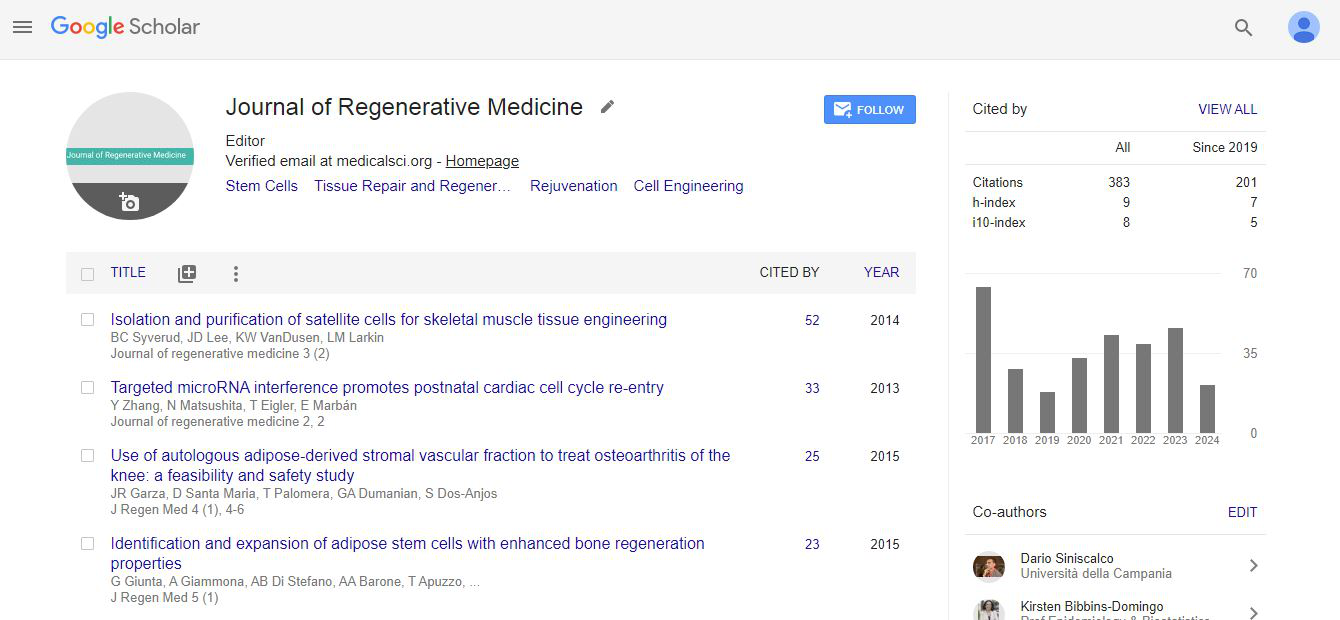Acupuncture in the multimodal biopsychosocial pain management: Towards a new model in clinical practice
Agnes Mazic - de Sonis
Chirec Delta Hospital Pain Clinic Pole Neuroscience, Belgium
: J Regen Med
Abstract
Chronic pain often involves problems such as poor nutrition, weight loss, decreased activity, sleep disturbances, social isolation, anxiety, fear and depression unemployment and financial problems. Conservative, pharmacological treatment may be produce tolerance and side effects. The principles of traditional Chinese medicine link three major themes: nutrition and microbiome, neuroplasticity, and homeostasis. We developed an algorithm of integrative medicine combining acupuncture, pharmaconutrition, including the natural compound, palmitoylethanolamide (PEA), a glial modulator and peroxysome-activated receptor alpha agonist, vitamin D and nutritional rehabilitation close to drugs. The objective of this treatment is to improve pain and prevent chronicity. Acupuncture results in pain alleviation with lower doses pain medication and reduction of the polypharmacy and its complication This multimodal approach influencing pain via synergistic non-drugs association like pharmaconutritional, acupuncture, neuroacupuncture, the modulation of non-neuronal cells such as glial and mast cells is a promising strategy; PEA proved to be effective and safe in nerve compression syndromes and when added to classical treatments. The effectiveness of acupuncture for treating pain conditions has been assessed in RCT’s and individual patient data meta-analysis. These trials demonstrate that acupuncture is a valuable treatment for a wide variety of conditions. Neuroimaging technology provided evidence that acupuncture increases activity in brain regions associated with pain and the sensation and affective perception. Cortical and subcortical brain regions, including the sensorimotor cortical network are activated and limbic-paralimbic-neocortical network is deactivated. Combination of acupuncture with drug treatment, pharmaconutrition, PEA and nutritional rehabilitation deserves further investigation and the development of targeted treatment strategies.
Biography
Agnes Mazic - de Sonis is specialized in gynecology/obstetrics. She followed a multidisciplinary training involving TCM acupuncture pharmaconutrition and pain medicine. In the pain clinic of CHIREC Brussels all aspects of pain treatment and integrative approach are used. The group performs research on treatment of refractory pain, drug tolerance and side effects, and efficacy of acupuncture. In the research on acupuncture a bidirectional approach of basic science and clinical trials is required. She is Professor in pain medicine and acupuncture in Brussels and Paris. She oversees a special interest group integrative pain medicine supported by Belgian pain society (IASP).
E-mail: a_mazic@yahoo.com
 Spanish
Spanish  Chinese
Chinese  Russian
Russian  German
German  French
French  Japanese
Japanese  Portuguese
Portuguese  Hindi
Hindi 